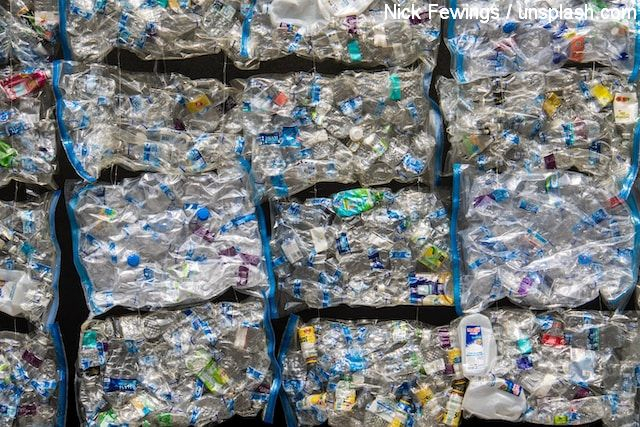The benefits and the challenges of the Guarantee-Return System
Romania is still far from meeting the objectives set at the level of the EU.

Corina Cristea, 08.12.2023, 14:00
Romania is still far from meeting the objectives set at the level of the EU. Moreover, Romania is far from complying with the European average percentage for the recycling of waste. As compared to the European average level of 50%, the level of recycling municipal waste stands at a mere 12% in Romania. It could be the main reason why Romania has decided to implement an ambitious Guarantee-Return System, (GRS) targeting primary non-reusable glass, plastic or metal packaging with a storage volume ranging from 0.1 to 3 liters included. The system has been implemented since November 30, following a minute preparation stage.
According to Green Environment Support, a company specializing in environmental audit, consultancy and waste management, ” through the GRS project, Romania has the capacity to recycle a much bigger quantity of waste in the coming years, thus securing a recycling advantage of up to 80% and becoming a landmark of circular economy and a role model, to that end.”
After Norway, Denmark, Germany, Belgium, Iceland, Estonia, Slovakia, The Czech Republic, Latvia and Lithuania, Romania is the 11th country in Europe that has implemented such a system. “We all want the GRS system to turn Romania from the country of waste storage into the country of waste recycling”, says the Romanian Minister of the Environment, Waters and Forests, Mircea Fechet.
“Taking into account the experience of other states that have initiated similar projects, we found out the first year is kind of difficult. In the first year, the system sort of settles in, it becomes more balanced, kind of, a bar code reading may be wrong, sometimes, some other time the equipment may be out of order, it may be disconnected from the supply source…It roughly takes a whole year for the system to become 100% functional, 100% operational. It is Romanias most important public-private partnership, it is Europes largest guarantee-return system, second only to the system in Germany, and for this reason I expect a good cooperation of all the actors involved in the entire process, ,but I also expect patience, as I am positive that in five years time, when we look back and find out we have a clean country, a country without plastic bottles, without waste, without packaging waste, we can say it was a very good idea, that of implementing this system. “
Statistical data have revealed that every year, in Romania, there are roughly 116 kilograms of packaging, of waste, per capita. Of those, less than a half are being recycled. The GRS project targets 80,000 beverage traders who will have to implement facilities for the collection of the 7 billion pieces of reusable plastic packages resulting in one year alone. The principle of the system is a simple one: a guarantee of 50 bani ( around 10 Eurocents) is paid at the purchase of a given beverage (water, soft drinks, beer, cider, wine, spirits) from a trader, the sum of money what will be returned later. To be more specific, when the package is emptied, the consumer will have to bring it to one of the return points set up by the traders. The consumer will then receive, on the spot, the value of the guarantee, in cash, as a voucher or via card transfer. And that without having to produce the receipt, even if the given product was not purchased from that commercial unit. The products that are part of the system are marked with a specific logo.
Minister Mircea Fechet once again:
“Any shop will have to provide a collection point. The collection will be done automatically, if the shop considers the number of packages is big enough to account for such an expense, through an RVM, a Reverse Vending Machine, or manually. In other words, the seller, will also have two bags under the counter, one for glass and one for PETs packaging, most likely, mixed with aluminum doses and, whenever someone shows up to return suck a packaging, that particular seller will pay 0.50 bani for each packaging and will collects the packaging in bags, waiting for the RetuRO company to arrive and take the returned packaging away and compensate with the value of the guarantee, on one hand, and with a management fee. Which means that, a shop, smaller or bigger, with an automatic or a manual collection, will be compensated for this work that they do, that of collecting the packaging from individuals.”
In its capacity of manager of the GRS system, RetuRO has announced it would open 17 dedicated centers in the coming year, where they will transport the beverage packaging collected from the tens of thousands of traders. The containers will be counted, sorted and prepared for transportation by the recycling companies, with the clear purpose of producing recycled raw material, to be used in the production of new beverage packaging.
Romanian Minister Mircea Fechet once again:
“If we look at the guarantee-return systems of other European countries, we can see that in Germany, for instance, we have 95% glass and 98% of aluminum cans. Now, we may not be able, from the very first time, to meet the percentages of Germany, however, beginning with the third year of functioning, the system should work according to the parameters that will have to stand at more than 90%. Which I think that, for Romania, it is a tremendous progress. “
Apart from advantages, the implementation of the RGS system in Romania may also pose a series of challenges. In general, producers, importers and the big retailers have taken a series of pre-emptive measures capable of making such an implementation simpler. However, if we take the smaller businesses into account, the situation is different, in that the smaller businesses face the challenge of finding the area that will have to be dedicated for the collection of the returned packaging or the investment required for the purchase of the Reverse Vending Machines. In another move, the fraud risk does exist. Some of the consumers may try to overdo it, returning counterfeit packaging, which requires the implementation of proper security measures.






























